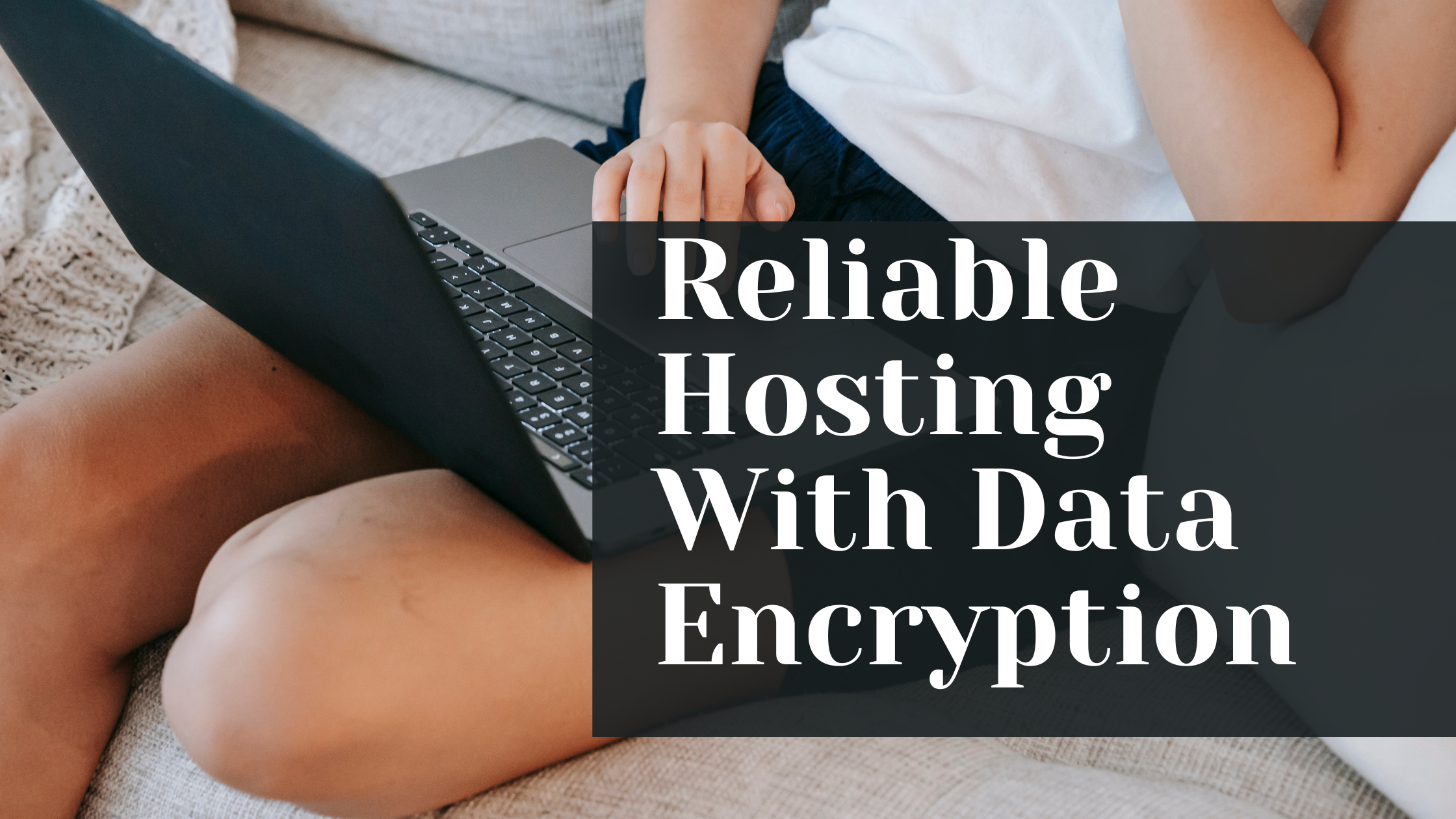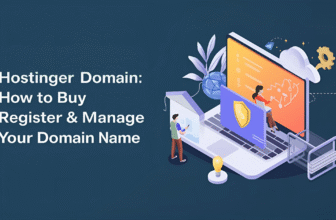
When it comes to ensuring the security of your website, reliable hosting with data encryption is crucial. Whether you are running an e-commerce platform, a blog, or a corporate website, security should be a top priority. Let’s dive into why this combination is essential and how you can benefit from it.
What is Reliable Hosting with Data Encryption?
Reliable hosting refers to web hosting services that offer high uptime, fast speeds, and strong security features. This is important because you need a hosting provider that ensures your website is always available to users without long downtimes. On the other hand, data encryption ensures that all the sensitive information shared between your website and its users is secure and private.
The Importance of Data Encryption
Data encryption plays a crucial role in protecting the privacy of your users. It prevents hackers from accessing sensitive data such as login credentials, credit card details, and personal information. Without encryption, this information is transmitted in plain text and can easily be intercepted by cybercriminals.
SSL (Secure Sockets Layer) certificates are the most common form of encryption. They encrypt the data exchanged between the website and the user’s browser, ensuring that hackers cannot view or manipulate it. When you install an SSL certificate on your hosting server, it turns the URL from HTTP to HTTPS, providing a secure connection.
Why Choose Reliable Hosting With Data Encryption?
- Enhanced Security: A hosting plan with built-in data encryption ensures all your data is encrypted during transmission, providing a layer of security against potential cyber threats.
- Better User Trust: Websites with SSL certificates and encryption are trusted by users. Seeing the HTTPS in the URL gives visitors peace of mind that their data is being securely handled.
- SEO Benefits: Google and other search engines consider security a ranking factor. Websites that use HTTPS are likely to be ranked higher than their non-secure counterparts.
How to Choose Reliable Hosting with Data Encryption?
When choosing a hosting provider, ensure they offer strong security measures such as regular backups, firewalls, and encryption. Here are some points to consider:
- Check for SSL Certificates: Always look for hosting services that provide SSL certificates either for free or at an additional cost. This will enable secure connections for your visitors.
- Look for Reputable Providers: Hosting companies like Bluehost, HostGator, and SiteGround offer secure hosting services with built-in encryption.
- Ensure Data Backup and Recovery: Regular backups are necessary in case of any security breach. Ensure the hosting provider offers automatic backup services to avoid data loss.
Pricing and Where to Buy
The pricing for hosting with data encryption can vary depending on the hosting provider and the level of service you choose. For example, Bluehost offers plans starting at $2.95 per month, which include free SSL certificates. HostGator also offers affordable plans starting at $2.75 per month, including SSL certificates for secure hosting.
You can buy these hosting plans directly from the hosting providers’ websites or through affiliate websites that offer exclusive discounts. Always check for promotional offers or seasonal discounts to get the best price.
Conclusion
Reliable hosting with data encryption is vital for securing your website and protecting user data. By choosing a hosting provider with SSL certificates and solid security features, you can build trust with your audience while safeguarding sensitive information. Make sure to compare different hosting plans, check for SSL certificates, and consider customer support and uptime before making your choice.
FAQs
- What is the difference between HTTP and HTTPS?
- Answer: HTTP (HyperText Transfer Protocol) is the standard protocol used for communication between a browser and a website, but it does not encrypt data transmitted between the two. HTTPS (HyperText Transfer Protocol Secure), on the other hand, uses SSL/TLS encryption to secure the data being exchanged. When you see “https://” in the URL, it indicates that the website is using encryption to protect user data. This is crucial for maintaining user privacy and trust, particularly on websites that deal with sensitive information like credit card details or login credentials.
- Why do I need SSL certificates on my website?
- Answer: SSL certificates are necessary to encrypt the communication between your website and its users. This encryption protects sensitive information, such as passwords, credit card numbers, and personal data, from being intercepted by hackers. SSL certificates also give your website the “HTTPS” designation, which is an important trust factor for users. Furthermore, Google uses HTTPS as a ranking signal, meaning websites with SSL certificates may rank higher in search results compared to those without encryption.
- Can data encryption improve my website’s SEO?
- Answer: Yes, data encryption can improve your website’s SEO. Google and other search engines prioritize secure websites that use HTTPS over those that use HTTP. Websites with SSL certificates signal to search engines that they are secure, which may improve your rankings. Additionally, HTTPS is associated with better user trust, leading to higher engagement and potentially lower bounce rates—further boosting your SEO performance.
- What are the main features I should look for in a reliable hosting provider?
- Answer: When selecting a hosting provider, you should prioritize:
- Uptime Guarantee: Look for a provider offering at least 99.9% uptime to ensure your website is consistently available to users.
- Security Features: Choose a provider with built-in encryption (SSL certificates), firewalls, and DDoS protection.
- Backup and Recovery: Automatic backup services are essential to safeguard your data in case of breaches or server issues.
- Customer Support: Ensure the hosting provider offers 24/7 customer support to address any technical issues promptly.
- Speed and Performance: A good hosting provider should offer fast server speeds to ensure a smooth user experience.
- Answer: When selecting a hosting provider, you should prioritize:
- What type of hosting should I choose for my website to ensure security and encryption?
- Answer: The type of hosting you need depends on the scale and needs of your website. Shared hosting is an affordable option for small websites, but for higher security, dedicated or VPS hosting plans are recommended, as they provide more control and better isolation of resources. Look for a hosting provider that includes SSL certificates, secure FTP access, and regular security updates. Many reputable hosting services offer security features bundled with their plans, so you can maintain a secure website without needing separate encryption services.
- How does reliable hosting help in mitigating cyber threats?
- Answer: Reliable hosting companies implement advanced security measures, such as firewalls, malware scanning, and DDoS protection, to safeguard your website from common cyber threats. These measures, along with the encryption provided by SSL certificates, make it significantly harder for hackers to gain unauthorized access to your site. Reliable hosting services also offer regular updates and security patches to ensure that your website is always protected against the latest vulnerabilities.
- Are SSL certificates expensive?
- Answer: The cost of an SSL certificate varies depending on the provider and the level of encryption required. Some hosting providers, like Bluehost and HostGator, offer free SSL certificates with their hosting plans, while others may charge a small annual fee. Generally, SSL certificates can range from $10 to $200 per year for extended validation (EV) certificates, which provide an extra layer of security and visual trust indicators like a green address bar. For most small to medium websites, a free SSL certificate offered by the hosting provider is sufficient.
- Can I install an SSL certificate on my website myself?
- Answer: Yes, you can install an SSL certificate on your website yourself, especially if your hosting provider offers easy one-click installation tools. Many hosting services have built-in features that allow you to enable SSL certificates with minimal technical knowledge. However, if you’re using a more advanced SSL certificate, such as one that requires additional validation, you may need to follow specific instructions or ask your hosting provider’s support team for assistance.
- What are the risks of not using data encryption for my website?
- Answer: Without data encryption, your website becomes vulnerable to attacks from hackers. They can intercept sensitive information, such as user login credentials, credit card details, and personal data, as it is transmitted in plain text over the internet. This increases the risk of data breaches, identity theft, and fraud. Furthermore, websites without encryption may be flagged by web browsers as “Not Secure,” which can erode user trust and discourage visitors from interacting with your site. Additionally, not using encryption can negatively impact your website’s SEO rankings.
- How do I know if my website is secure and using data encryption?
- Answer: You can easily check if your website is secure by looking at the URL in the browser’s address bar. If it starts with “HTTPS” instead of “HTTP,” your website is using an SSL certificate and encryption to secure data. Additionally, many web browsers display a padlock icon next to the URL to indicate a secure connection. You can also use online SSL checking tools to verify if your website’s encryption is set up correctly and whether there are any vulnerabilities.
In conclusion, reliable hosting combined with data encryption is essential for securing your website and protecting sensitive information. From SSL certificates to secure hosting environments, these measures not only safeguard user data but also contribute to better user trust and improved SEO rankings. Make sure to choose a reputable hosting provider that offers strong security features, including SSL certificates, firewalls, and regular backups, to ensure your website remains safe and accessible at all times.






